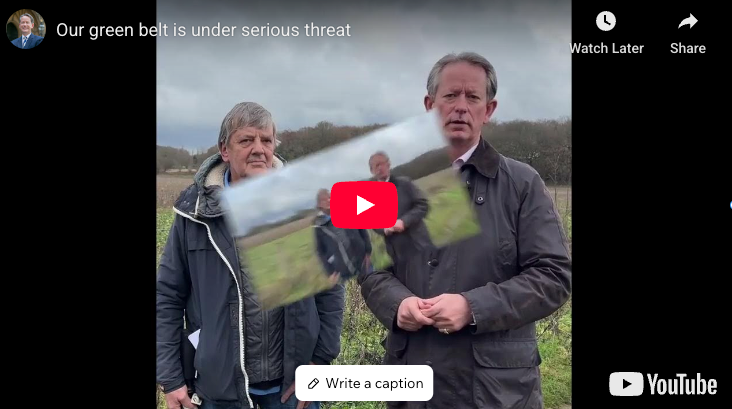Statement on the Police, Crime, Sentencing and Courts Bill
- Mar 16, 2021
- 2 min read
Yesterday we started two days of debate on the Police, Crime, Sentencing and Courts Bill. In a nutshell, lots of things are packed into this Bill - many of them promised in our election manifesto.
Contrary to some assertions, the Bill is not being “rushed through Parliament.”
It is currently at Second Reading (for which two days have been set aside for debate) after which it will go through the Committee Stage, Report Stage and Third Reading (with a parallel process in the House of Lords) during which amendments may be proposed.
Some constituents have written to me about the Bill and I think it is important to set out what this Bill is about and what it is not:
The Bill is NOT about the temporary COVID restrictions, which are a completely separate issue and are due to come before the House before Easter.
The Bill is NOT about the Sarah Everard case. The events at the Clapham Bandstand vigil need to be fully investigated but it is completely inappropriate to draw those events - and the tragic death of a young woman and her grieving family - into a debate about this legislation.
It is also important to set out some of the things the Bill is trying to do - and try and clear up one particular misunderstanding about what it means for the freedom to protest.
What the Bill does do is:
Provide tougher sentences for child murderers, sex offenders, killer drivers and those attacking emergency service workers.
Offers more protection to women and children from abuse.
Make it easier to deal with illegal encampments.
This is worth reflecting upon. Opposition to the Bill means a vote against these measures that have long been called for.
The Bill also includes measures to stop extremist groups who hijack legitimate causes and peaceful protest in order to cause harm to people and property, attack the police and cause "serious disruption" to society.
“Serious disruption” is not a new term, but is in fact a well-established and defined legal concept. The changes to the law bring ‘static’ protests in line with equivalent provisions that apply to marches / processions under s12 Public Order Act.
The update also is a response to tactics such as protestors gluing themselves to buildings, smearing excrement or attaching razor blades to their clothes - things that weren't envisaged under the existing legislation.
Examples of things that could cause serious disruption might include:
Blocking a bridge or road to stop pedestrians and/or traffic from getting through;
Preventing a train from leaving a station;
Physically preventing a printing press from operating because you disagree with the editorial position of that publication.
It should be clearer now that this Bill does NOT remove people’s freedom to protest. For example, a protest would NOT cause serious disruption if it is a peaceful vigil in a park or it might distract employees in a nearby office.
There’s also a fact sheet on the issue explaining the Bill in more detail and answering some key questions: https://www.gov.uk/government/publications/police-crime-sentencing-and-courts-bill-2021-factsheets/police-crime-sentencing-and-courts-bill-2021-protest-powers-factsheet


